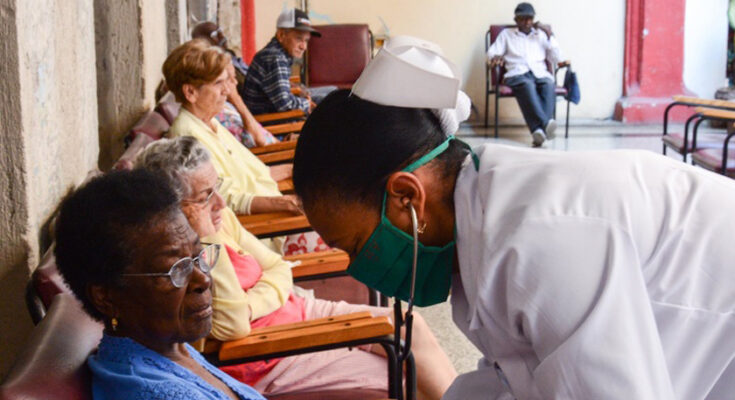January 2025 – By the year 2025, Cuba was expected to be among the countries with the highest levels of population aging, a phenomenon that should occupy and concern society, families and government and state institutions at national and territorial levels.
The widening of the demographic pyramid in the part corresponding to people over 65 years of age and its narrowness in other age groups is the result of a combination of several factors, including the growth of life expectancy, low fertility and birth rates, as well as the impact of emigration.
These realities make it necessary to urgently implement the demographic policies set forth by the government to address the aging of the Cuban population, and to adopt others that seek to increasingly improve the health, quality of life, psychological well-being and social usefulness of older adults, so that they can remain active and take an increasing part, according to their abilities, in the socioeconomic activities of their environment.
Attention to the elderly cannot be seen or be satisfied only with social assistance to the most vulnerable or by the guarantee of retirement for workers, it demands effective inclusion programs; adaptation of spaces to their limitations, vigilance against discrimination, observation of their claims and needs and the education of children and young people in the values of respect and solidarity with the elderly.
As a sample, I list only a few things that can and should be improved, and I explain myself: when the process of computerization and bankarization of Cuban society is still in its infancy and chaos clings in some places of access to physical money, for example, it is urgent to think of that old man whose knees can not stand hours standing in front of an ATM, or diabetes prevents him from waiting one day after another, for the deposit of a small business or for the administrative decision to charge or not that digital device, in the midst of unfair competition with the rest of their peers of younger age.
It should not happen, either, that no matter how subsidized and limited the food produced in the family care systems is, it is dispensed without the adequate presence or with the quality required in consideration of the beneficiary diners.
Poverty and lack of opportunities should not be mixed with the lack of respect for human dignity… In the midst of so many shortages and limitations, we must continue to think of the elderly with greater affection and empathy, putting our own skin in their place whenever we speak or decide for them.
Socialism, the Revolution, governments, institutions, communities and families have that historical obligation, and they must assume them with certainty to demonstrate the depth of that fidelist humanism of which we speak with pride in any tribune.
Martí said it: “The elderly are patriarchs […]; rejoicing of the spirit, delight of the eyes, pride for those of us who are born, and gala and luster of the copious memories of the homeland! […] what good does he who consoles them do! In the street we should take off our hats when an old man passes by. Any other attitude is an infamy”.





